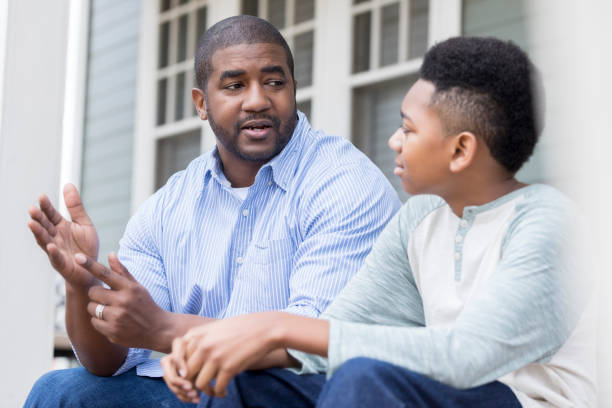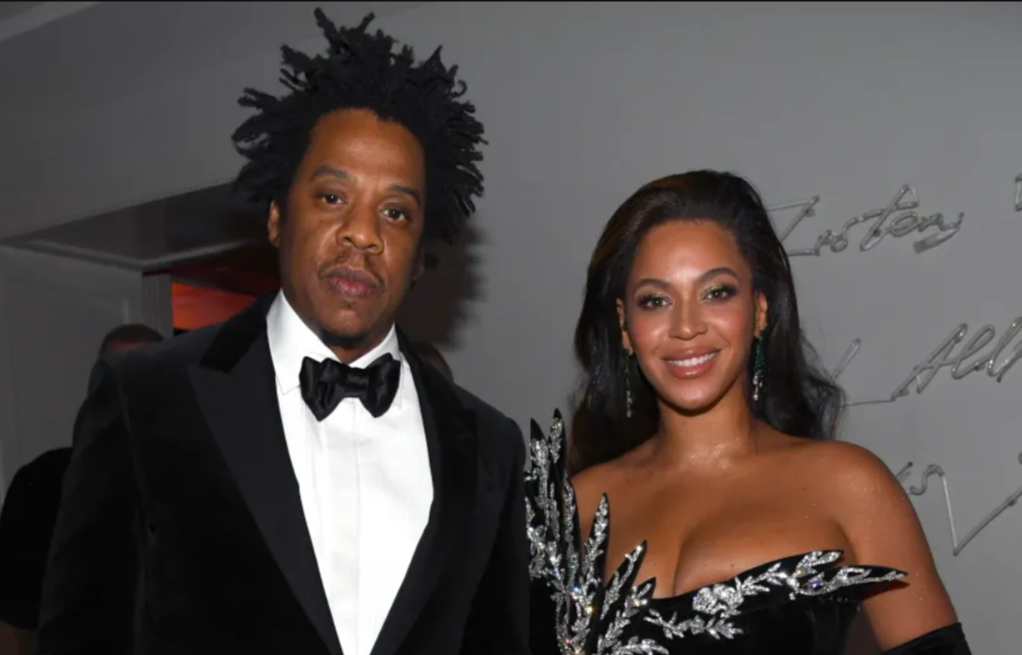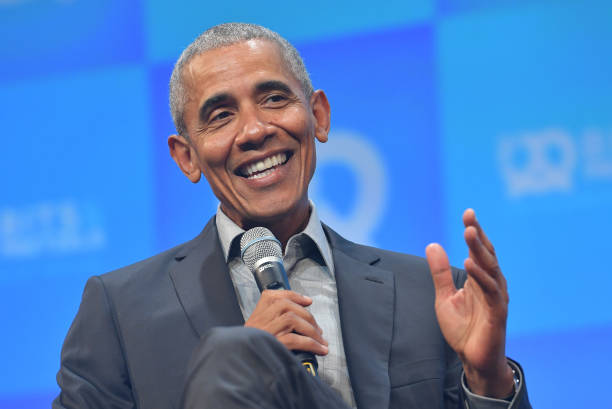(ThyBlackMan.com) A few weeks ago I wrote about some of the concerns that I have regarding my teenaged son. Despite those concerns, I have every reason to believe that he is going to do, and to be, quite well in the years ahead. My belief is rooted not only in my faith; it is also based upon his intellectual brilliance, his educational background (which should not be conflated with his intelligence), his emotional maturity, and his faith. In humility, I would add that the illimitable, unconditional love and support from his mother and me are also crucial.

On the other hand, I am exceedingly concerned about the Black boys who are not similarly situated – which is the majority of them. I am afraid for the ones who do not have a stable and loving home life, who lack adequate nutrition, or who languish in grossly subpar schools. There are far too many who don’t have a safe and reliable support system outside their domicile – not to mention those who don’t even know where they will lay their head each night. One cannot be of good conscience and also be unmindful or uncaring about those who struggle to have their most basic needs adequately met.
What happens to those young men who are the products of deep generational trauma, violence, and poverty? Tragically, we know the results in many cases. Recently, I watched a video that left me speechless, heartbroken, and guilt-stricken. I mean that quite literally. The video was shot on the near eastside of Indianapolis and included several interviews with Black male youth who reside in the area. I don’t think that I have ever witnessed such nihilism and self-abnegation in my 53 years of life. I’m not being hyperbolic.
The young men in this video proudly brandished multiple semiautomatic weapons and (thanks to Indiana’s utterly irresponsible permit-less carry law) any number of handguns. They spoke in the most casual way about unspeakable violence. They were prepared to die – or to kill for – a “hood” in which they owned nothing but their guns and the clothes on their backs. They threatened any “outsider” who dared to move into the area. Perhaps most shockingly, they forcefully disparaged the notion of community. They vowed not to entertain any entreaties that called for “brotherhood”. I watched in horror and despair.
In his multi-volume series, Countering the Conspiracy to Destroy Black Boys, Dr. Jawanza Kunjufu argues that such pathology is the almost inevitable result of parental and societal failures. Despite some troubling aspects of his arguments, Dr. Kunjufu pinpoints several of the root causes of the self-destruction and societal decay that are on display in so many cities today. Perhaps his most salient point is that, despite the title of his best-known work, there doesn’t have to be a well-coordinated “conspiracy” in the traditional sense of that word. Kunjufu notes, accurately, that the progenitors, purveyors, and beneficiaries of systemic racism in America constitute a de facto conspiracy which too often robs Black children – especially males – of even the simplest components of life that most people take for granted.
This is despite the fact that there are thousands of programs across the country that are specifically designed to address the challenges that Black male youth face. Some are based in religious institutions and nonprofit organizations. Others are run by the government. And there are countless other efforts that take place informally among family members, friends, and numbers. Obviously, there is a natural spectrum of relative effectiveness, but most of these efforts are run by people who are deeply committed to effecting societal change.
Of course, there are, and have always been, critics of such programs. A portion of such critics are well-meaning; others decidedly are not. Both types tend to point to the amount of money that goes into such efforts and lament the apparent lack of societal transformation as regards Black male youth. Yet, they fail to acknowledge the fact that (1) racial and socioeconomic barriers never fully disappear; (2) efforts to address such barriers hardly ever are capitalized well enough to dismantle them; and (3) some measures are poorly constructed and even counterproductive. Perhaps most importantly, one has to wonder how much worse the outcomes would be if it were not for such prevention and intervention. It is impossible to answer with absolute certainty.
However, we do know that an exceedingly small percentage of the population commits the overwhelming majority of such crime. While Black males are extremely overrepresented in the carceral (and pre-carceral) system, the actual numbers are quite small. Of course, one certainly does not get that impression by consuming most local or national television news programs. In any case, I am convinced that those of us who work to attenuate such problems are making a real difference in the lives of most of the young men who are dedicated to changing their life’s trajectory.
For more than 100 years, a range of leaders – from professors to preachers – have warned that our nation would be wrestling with the seemingly intractable challenges that we now face. It doesn’t have to be this way. In his inimitable Letter from a Birmingham City Jail, Martin Luther King wrote:
“In a real sense all life is inter-related. All men are caught in an inescapable network of mutuality, tied in a single garment of destiny. Whatever affects one directly affects all indirectly. I can never be what I ought to be until you are what you ought to be, and you can never be what you ought to be until I am what I ought to be…
This is the inter-related structure of reality.”
America will never fulfill its promise until Black boys are fully included in the paths that lead to prosperity. If we do not learn this simple lesson, we will continue to reap what we have sown.
Written by Larry Smith














There is more than one tao( i.e. pathway ) that lead to enlightenment, and subsequent prosperity. Gun usage, Blood shed, and violence is just one tao that leads to a great underlying truth about living in America. Contemporary African American lifestyles in America do not morally, or ethically refute the prosperity value that comes with being thoroughly violent as a pathway to prosperity.
Black people whether married or single hasn’t done an adequate job of raising sons to have a sucessful prospersous life.
Heres some extra tips.
1. Teach them the financial rules to get ahead.
a. Live beneath your means
b. Shop around for the best price
c. The savings from living beneath your means should go to investing
in a small company
2. Never get COMFORTABLE working for these companies.
They view us as DISPOSABLE and will terminate just to get stock prices up for investors or have more cash for the company. So always have a backup. NEVER GET COMFORTABLE.
3. Excercise Patience DISCIPLINE AND RESTRAINT IN ALL THINGS . That include romantic/ platonic relationships, spending, business ownership, at work etc.
4. As soon as turn 18 start small LLC. They dont have to be profitable.
5.ONLY USE CREDIT FOR BUSINESS. NO CREDIT FOR CONSUMER SPENDING.
6. NEVER GET A CAR LOAN, SAVE UP AND BUY A CAR.
7. IF YOU HAVE TO TAKE OUT LOANS FOR COLLEGE DONT GO THERE.
8. YOU DON’T HAVE TO GO TO COLLEGE TO BE SUCESSFUL
YOU CAN BECOME SELF EMPLOYED OR LEARN A TRADE.
9. ITS NOT ENOUGH TO DO THE RIGHT THING AND WORK HARD YOU MUST OWN. THOSE WHO OWN CONTROL.
10. PICK THE WOMAN YOU WOULD WANT YOUR DAUGHTERS TO BE LIKE.
11. DONATE A LITTLE OF YOUR TIME TO HELPING SOMEONE ELSE IN YOUR FAMILY AND COMMUNITY, MAYBE BECOME A MENTOR.
12. ITS OK TO FALL DOWN BUT ITS NOT OK TO STAY BACK DOWN. DUST YOURSELF OFF GET BACK UP. Meaning In this life mistakes will be made, but you just gotta keep on going.
Share this valuable info with as many people as possible.